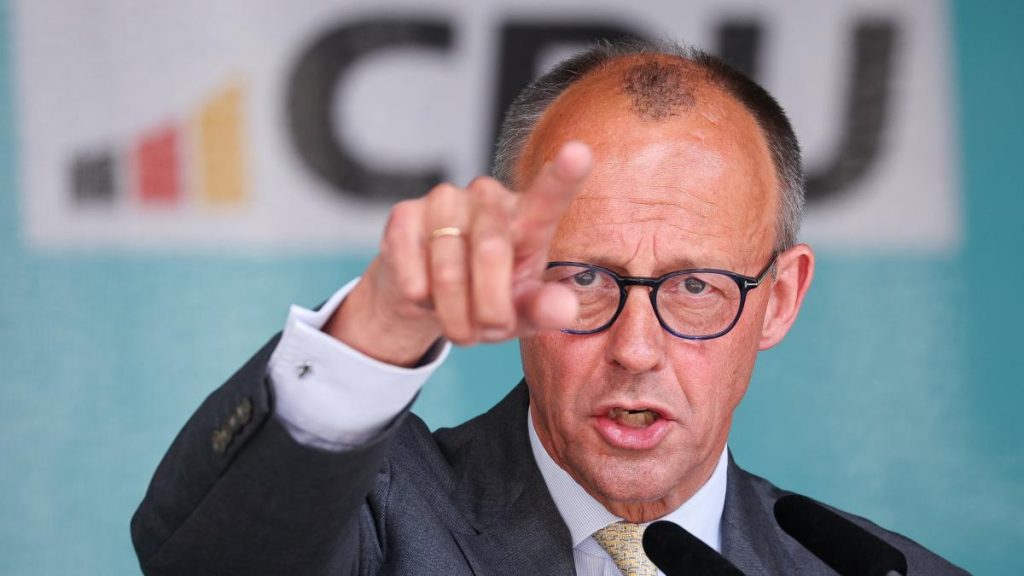In a recent survey, the Union parties in Germany have experienced a noticeable decrease in support, dropping to 30 percent. The SPD also continues to struggle, remaining at 16 percent. However, in a direct election for Chancellor, Olaf Scholz would have the edge over Friedrich Merz. This shift comes after two weeks of stability for the CDU and CSU at 32 percent in the RTL/ntv Trendbarometer, but now they have fallen by two percentage points to 30 percent in the latest Forsa survey. The Greens have also seen a slight decrease to 13 percent, while the FDP, the BSW, and other parties have each gained one percentage point. The SPD and AfD remain unchanged at 16 percent and 15 percent, respectively.
The survey also asked participants to choose between Olaf Scholz and Friedrich Merz in a hypothetical direct election for Chancellor. Currently, slightly more eligible voters would opt for Scholz at 33 percent, compared to 31 percent for Merz. Scholz leads in both the eastern and western regions of Germany, with more support from women (35 percent) compared to men (30 percent), while Merz has more support from men (34 percent) than from women (28 percent). Scholz also enjoys greater backing from SPD supporters at 78 percent, compared to Merz’s support among Union followers at 68 percent. The data on party preferences were collected by Forsa on behalf of RTL Germany from May 21 to 27, 2024, surveying 2,503 individuals with a margin of error of +/- 2.5 percentage points.
The decline in support for the Union parties and the rise of the SPD in the survey reflect shifting political dynamics in Germany. While the CDU and CSU had maintained a stable position for some time, the recent drop in approval ratings could indicate a growing dissatisfaction among voters. The results also suggest that Olaf Scholz’s popularity as a candidate for Chancellor is on the rise, as he outperforms Friedrich Merz in a head-to-head matchup. These findings may have implications for the upcoming federal elections and the potential for a change in leadership in the country.
With the possibility of a “Chancellor Duel” between the incumbent Chancellor and the leading opposition candidate in the upcoming federal elections, the survey results provide valuable insights into voter preferences. The fact that more respondents would choose Olaf Scholz over Friedrich Merz in a direct election highlights Scholz’s growing appeal among the German electorate. The differences in support between men and women, as well as among party loyalists, also offer interesting insights into the dynamics of German politics and the preferences of different voter demographics.
Despite the decline in support for the Union parties and the relatively low popularity of Friedrich Merz compared to Olaf Scholz, the political landscape in Germany remains fluid. The upcoming federal elections will be a crucial moment for both parties as they seek to secure the support of the electorate and shape the future direction of the country. The findings of the survey underscore the importance of candidate appeal and party dynamics in shaping voter preferences, as well as the significance of leadership choices in determining the outcome of elections. As the campaign season progresses, it will be interesting to see how these trends develop and influence the political landscape in Germany.














